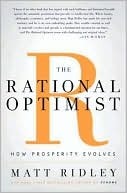More on this book
Community
Kindle Notes & Highlights
by
Matt Ridley
Read between
November 21 - December 25, 2021
Exchange is to cultural evolution as sex is to biological evolution.
You are poor to the extent that you cannot afford to sell your time for sufficient price to buy the services you need, and rich to the extent that you can afford to buy not just the services you need but also those you crave.
country’s economic freedom predicts its prosperity better than its mineral wealth, education system or infrastructure do. In a sample of 127 countries, the sixty-three with the higher economic freedom had more than four times the income per capita and nearly twice the growth rate of the countries that did not.
at 7,600 years ago, farmers who were happily cultivating the fertile plains around the ‘Euxine lake’ suffered a rude shock, when rising sea levels burst over the Hellespont and flooded into the lake’s basin, filling it at a rate of six inches a day till it became the modern Black Sea. Baffled refugees presumably fled up the Danube into the heart of Europe. Within just a few hundred years, they had reached the Atlantic coast, peopling all of the southern half of Europe with farmers, sometimes by infecting their neighbours with enthusiasm for the new trick of farming, but more often (so the
...more
The characteristic signature of prosperity is increasing specialisation. The characteristic signature of poverty is a return to self-sufficiency. Go to a poor village in Malawi or Mozambique today and you will find few specialists and people consuming a high proportion of what they produce. They are ‘not in the market’, as an economist might say. And quite possibly they are less ‘in the market’ than ancient agrarian folk like Oetzi were.
In the last third of the twentieth century, a prosperous yet nostalgic time, farming came to be reinterpreted as an invention born of desperation rather than inspiration, and perhaps even ‘the worst mistake in the history of the human race’.
‘One of the most extraordinary facts of the [eighteenth] century was the enlargement of the consuming classes,’ says Robert Friedel. ‘There was a consumer revolution in eighteenth century England,’ writes Neil McKendrick: ‘more men and women than ever before in human history enjoyed the experience of acquiring material possessions.’ Compared with mainland Europeans they were wearing wool cloth (as opposed to linen), eating beef (as opposed to cheese) and white wheat bread (as opposed to rye). For Daniel Defoe, writing in 1728, a low level of demand from the masses was far more important
The Amazon rainforest is in a state of constant perturbation: from tree falls to fires and floods, its diversity requires it to be constantly changing. There is no equilibrium in nature; there is only constant dynamism. As Heraclitus put it, ‘Nothing endures but change.’
the scientist Terence Kealey has observed, modern politicians are in thrall to Bacon. They believe that the recipe for making new ideas is easy: pour public money into science, which is a public good, because nobody will pay for the generation of ideas if the taxpayer does not, and watch new technologies emerge from the downstream end of the pipe. Trouble is, there are two false premises here: first, science is much more like the daughter than the mother of technology; and second, it does not follow that only the taxpayer will pay for ideas in science.
One of Britain’s advantages in the eighteenth century was that it was accumulating a collective fortune, made from foreign trade, and a comparatively efficient capital market to distribute funds to innovators. More specifically, the industrial revolution required long-term investment in capital equipment that could not easily be liquidated – factories and machines, for the most part.
In an eerie repetition of the same pattern, Silicon Valley owes much of its explosion of novelty to its venture capitalists on Sandhill Road. Where would Amazon, Compaq, Genentech, Google, Netscape and Sun be without Kleiner Perkins Caulfield? It is no coincidence that the growth of technology industries took off after the mid-1970s when Congress freed pension funds and non-profits to invest some of their assets in venture funds. California is not the birthplace of entrepreneurs; it is the place they go to do their enterprising;
The pharmaceutical industry, having tried again and again to instil a sense of radical thinking into its research departments, has largely given up the attempt and now simply buys up small firms that have developed big ideas. The history of the computer industry is littered with examples of big opportunities missed by dominant players, which thereby find themselves challenged by fast-growing new rivals – IBM, Digital Equipment, Apple, Microsoft. Even Google will suffer this fate.
Money is certainly important in driving innovation, but it is by no means paramount. Even in the most entrepreneurial of economies, very little saving finds its way to innovators.
The secret of the modern world is its gigantic interconnectedness. Ideas are having sex with other ideas from all over the planet with ever-increasing promiscuity. The telephone had sex with the computer and spawned the internet. The first motor cars looked as though they were ‘sired by the bicycle out of the horse carriage’. The idea for plastics came from photographic chemistry. The camera pill is an idea that came from a conversation between a gastroenterologist and a guided-missile designer. Almost every technology is a hybrid.
I have observed that not the man who hopes when others despair, but the man who despairs when others hope, is admired by a large class of persons as a sage.
‘It is the failure of modern man to observe the constraints necessary for maintaining the integrity and stability of the various social and ecological systems of which he is a part that is giving rise to their disintegration and destabilization’


